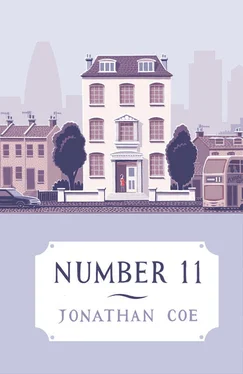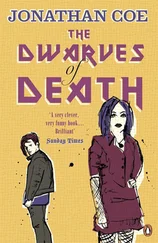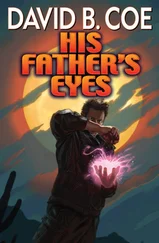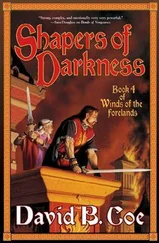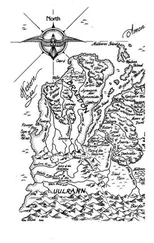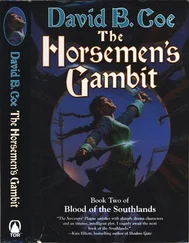When he returned with their drinks he said: ‘What are you looking at?’
Laura’s attention had by now been drawn towards a bunch of undergraduates squeezed around a corner table. There were six of them, and they all had their phones out: they were putting their arms around each other and leaning in and taking selfies while joking and swapping empty-headed banter at the tops of their voices. There were pints of beer on the table as well as vodka shots. Incongruously, a copy of the student magazine Isis was lying there as well. It seemed to belong to a blonde-haired student who was sitting slightly apart from the others, not quite able to enter wholeheartedly into their spirit of raucous, alcohol-fuelled hilarity.
‘Just thinking what it would be like to be young again,’ said Laura, nodding in their direction. ‘Couple of my lot in there. The spotty boy, and the blonde-haired girl.’
‘She looks like she’d rather be in her room with a knitting pattern and a cup of hot cocoa.’
‘No, she’s not like that. She’s a bright girl. Just a bit more … independent than most.’
‘Teacher’s pet, by any chance?’ Danny asked, smiling.
Not rising to the bait, Laura continued (almost as if to herself): ‘I did that thing at the beginning of the first term. Asking each of them to bring in a favourite text. It could have been anything. Prose, poetry, drama, film. She brought in a song lyric. “Harrowdown Hill”, by Thom Yorke. Do you know it?’
Danny shook his head.
‘It’s about the death of David Kelly.’
He glanced across at the student now. ‘Interesting choice,’ he said. ‘Who is she?’
‘Her name’s Rachel. Rachel Wells.’
‘State or private?’
‘State. She’s a Yorkshire girl. Mother lives in Leeds, I think.’
‘And did she say why she chose it?’
Laura was looking at the group of students more closely. It was more obvious than ever that Rachel stood out from the others, did not feel at ease with them.
Abstractedly, she answered: ‘Not really. She said it brought back memories.’
*
Laura did not much like eating lunch on High Table, but she knew that it was a good idea to do so occasionally: otherwise word would get around that you were ‘chippy’ or ‘bolshie’. So the next day she took the plunge, and even found herself sitting next to the Master of the college, Lord Lucrum. They were not natural dining companions: Lord Lucrum was an influential figure in public life, with close ties to the present government; but like so many powerful figures in the British establishment he had the talent of pretending to be a good listener, and of keeping his own views to himself when in company. He was a relatively young peer — a robust and well-preserved fifty-nine — and he nodded with every appearance of alertness as Laura attempted a halting explanation of her current paper on the Loch Ness Monster, and its role as a generator of income in books and films.
‘Commodifying fear,’ he said, mopping up gravy with a slice of bread. ‘What a fascinating notion. Do you think that’s possible, with any degree of precision? Do you think that human emotions can be … priced?’
‘Well, that’s rather outside the scope of my piece, I’m afraid,’ said Laura.
‘Pity,’ he replied. ‘I thought you might be on to something interesting there.’
Their conversation dried up soon after that, and Laura’s attention was distracted, in any case, when she noticed Rachel Wells eating by herself in a far corner of Hall, the February sunshine throwing a shaft of late-winter light through the high stained-glass window on to her plate of shepherd’s pie and overcooked vegetables. On a whim, Laura excused herself to his Lordship, went to fetch herself a cup of coffee and then stopped by Rachel’s table. She was touched to see that she still had a copy of Isis magazine in front of her: she seemed to be taking it everywhere.
‘Hello. A rumour reaches me that you’ve got a story published in there.’
Rachel looked up and smiled, pleased but bashful. ‘That’s right, yeah.’
‘In your second term! Well done. Mind if I join you?’
‘No, of course not.’
Laura sat down opposite her. For a moment or two they ate and drank in silence. Laura had her back to the wall, and could see that Rachel kept glancing up at something behind her. She craned around to see what it was.
‘Oh,’ she said. ‘Him.’
They were sitting beneath a large portrait, in oils, of a corpulent, white-haired man in his sixties or seventies, sporting a spotted bow tie and a suit that must have been several sizes too small for him. His face had the ruddy glow of an enthusiastic drinker but was otherwise far from benevolent, being contorted into a combative frown. He was sitting at a desk in an austere, sparsely furnished office. On the wall behind him a motto had been picked out in elegant calligraphy: it consisted of the three words ‘FREEDOM, COMPETITION, CHOICE’.
‘Who is it?’ Rachel asked. ‘I see this picture every day but nobody’s told me who it is.’
‘One of our more colourful fellows,’ said Laura. ‘No longer with us, sadly. His name was Henry Winshaw. He was a Labour MP, once. Then he had a Damascene conversion, like so many people, and went over to the other side. My husband, Roger, started a petition once to get his portrait taken down. He had a particular problem with that word — “Choice”. He used to claim that it put him off his food.’
‘I know the feeling,’ Rachel said. ‘But for me it’s his eyes. They give me the creeps.’
‘Mm … The way they follow you around the room. That’s the sign of a good portrait, apparently.’
‘And the petition didn’t get very far, I’m guessing.’
‘Hardly. Our distinguished Master up there —’ she nodded in the direction of Lord Lucrum — ‘was something of a disciple of his, I think. I seem to remember reading they spent time on some influential committee together.’
Rachel did not seem to be listening any more. She put her fork down and pushed her plate of food aside, half finished.
‘You feeling OK?’
She grimaced. ‘I’ve got the mother of all hangovers.’
‘Ah. Yes, I saw you in the pub with your friends. Late night, was it?’
‘Very. Plus, I ended up having to take someone to A & E. A girl called Rebecca. She lives on my staircase. She tripped on the pavement when we were coming back. I think she’d had one too many. About ten too many, in fact.’
‘Oh dear. Is she all right?’
‘Yes, it was just a cut. We didn’t have to wait long, and the doctors were great.’ Rachel seemed embarrassed by all this, perhaps worried that it was not putting her in a good light. ‘Sorry. Typical student behaviour, I know. And it won’t help me get the Milton essay written on time …’
‘Don’t worry about that. My suggestion would be that you go and get some sleep. Paradise Lost will still be there when you wake up.’
Rachel smiled. ‘OK. Thanks.’
*
That night, sitting at home alone in the blue glow of her laptop, with Harry already deep into his second hour of untroubled sleep, Laura downloaded the online edition of Isis and read Rachel’s story. It wasn’t bad at all: a vividly imagined dialogue between a young, idealistic barrister and her client, a jaded prison officer on trial for whistleblowing. It had the ring of truth and felt experience behind it. Afterwards, Laura went on to Facebook and did a search for Rachel’s name. She found her home page quickly enough, but it didn’t tell her anything: the privacy settings blocked access to everything except her cover and profile pictures. Laura tried to click on the profile picture, at least, but nothing happened, and it remained the size of a postage stamp. But there was another, perhaps more promising avenue to explore: the other student she had recognized at the pub table last night, ‘the spotty one’, as she had rather unkindly designated him. She typed his name into the search box and after a couple of false starts found herself swiftly directed to his home page, on which — as she had guessed — no privacy settings had been put in place at all. She looked at the latest messages and found — also as she had been expecting — that Rachel had been tagged in a number of recent photos. Following the link took her straight into an album called ‘Larking About, Monday Night’.
Читать дальше
